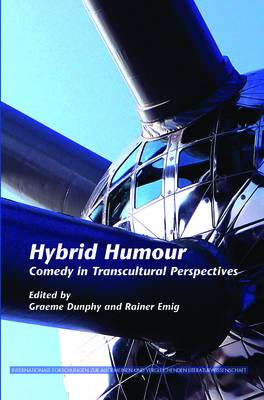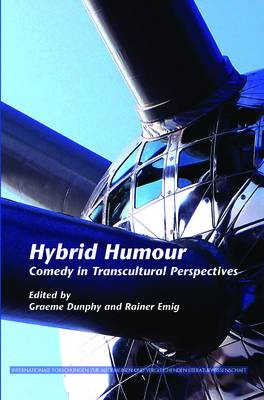
- Afhalen na 1 uur in een winkel met voorraad
- Gratis thuislevering in België vanaf € 30
- Ruim aanbod met 7 miljoen producten
- Afhalen na 1 uur in een winkel met voorraad
- Gratis thuislevering in België vanaf € 30
- Ruim aanbod met 7 miljoen producten
Zoeken
Hybrid Humour
Comedy in Transcultural Perspectives
€ 95,45
+ 95 punten
Omschrijving
An interdisciplinary and transcultural study of comedy in a pan-European perspective that include East, West, and Southern European examples. These range from humour in Polish poetry via jokes about Italian migrants in English-speaking TV commercials to Turkish comedy, literature and cartoons in Germany, Turkish, Surinamese, Iranian and Moroccan literary humour in the Netherlands, Beur humour in many media in France, and Asian humour in literature, film, and TV series in Great Britain. The volume is prefaced and informed by contemporary postcolonial theories that show humour not as an essential quality of each particular culture or as a common denominator of humanity, but as a complex structure of dialogue, conflict, and sometimes resolution. The volume is of interest for students and scholars of Comparative Literature, Cultural Studies, and Media Studies as well as for students and experts in the cultures and literatures that are covered in the collection of essays. It is relevant for courses on globalisation, migration, and integration.
Specificaties
Betrokkenen
- Uitgeverij:
Inhoud
- Aantal bladzijden:
- 192
- Taal:
- Engels
- Reeks:
- Reeksnummer:
- nr. 130
Eigenschappen
- Productcode (EAN):
- 9789042028234
- Verschijningsdatum:
- 1/01/2010
- Uitvoering:
- Paperback
- Formaat:
- Trade paperback (VS)
- Afmetingen:
- 155 mm x 234 mm
- Gewicht:
- 276 g

Alleen bij Standaard Boekhandel
+ 95 punten op je klantenkaart van Standaard Boekhandel
Beoordelingen
We publiceren alleen reviews die voldoen aan de voorwaarden voor reviews. Bekijk onze voorwaarden voor reviews.







